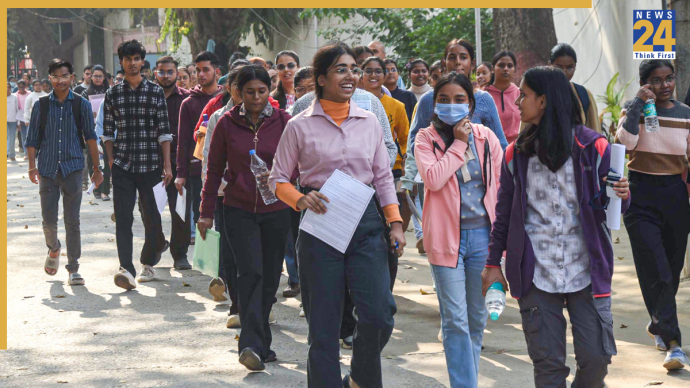In collaboration with IIT Madras, the Indian Railway has successfully developed the country’s first Hyperloop test track, marking a significant milestone in the future of high-speed transportation.
This cutting-edge system promises to revolutionize rail travel, allowing trains to travel from one place to another in minutes.
The test track, located at IIT Madras’s Discovery Campus in Thaiyur, is 410 meters long, and initial tests have demonstrated that the train can reach speeds of up to 100 km/h. Plans are now underway to test speeds of up to 600 km/h. If successful, this technology could transform travel in India. For example, a journey from Jaipur to Delhi, which currently takes several hours, could be completed in 40 to 50 minutes.
Union Minister for Railways, Ashwini Vaishnaw, shared a video of the Hyperloop test track on social media, praising the efforts of the team behind the project. The technology has been developed by “Tutor Hyperloop,” a student startup from IIT Madras. Minister Vaishnaw expressed hope that India would soon realize the potential of this technology.
According to media reports, the first Hyperloop train in India is expected to operate between Mumbai and Pune, a distance of around 150 kilometers. The new transport system would reduce the journey time between these two cities to just 25 minutes.
The Hyperloop system, which operates in a vacuum tube, offers the promise of high-speed, affordable, reliable, and sustainable transportation. One of the key advantages of this system is that the train does not stop at intermediate stations, traveling directly from one point to another without any interruptions.
Unlike conventional trains, the Hyperloop is designed to travel at extremely high speeds, with a maximum theoretical speed of up to 1,000 km/h. The technology, initially proposed by Tesla’s Elon Musk in the United States, has the potential to significantly reduce pollution due to its clean, energy-efficient design. Currently, studies are being conducted to assess the economic feasibility of implementing this advanced transport system in India.
Also Read: Noida International Airport’s First Flight Validation Test Today – When Will It Be Open To Public?













